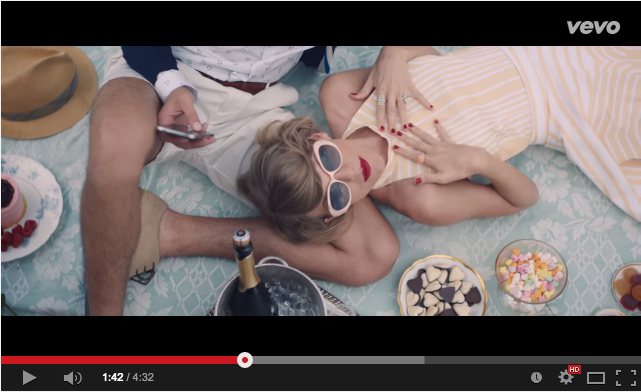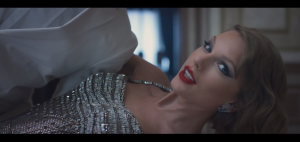The evolution of Taylor Swift
I’ve never been a Taylor Swift fan. Sure, I might have listened to “Fifteen” once or twice in the seventh grade, but there was never any serious involvement. I never felt inclined to listen to her music, which I found to be too boy-crazy and cheesy. The soft blonde curls, white flowy dresses, and acoustic guitar aesthetic don’t really appeal to me, either. Mainly, the biggest issue is the problematic lyrics during her early years.
To start, in “Picture To Burn,” released in 2006, the lyrics suggest being gay is something to be made fun of: “So go tell all your friends that I’m obsessive and crazy / That’s fine, I’ll tell mine you’re gay.” She also perpetuated the Madonna/Whore Complex, a dichotomy in today’s culture used to suppress women’s sexual agency with double standards, where not having sex is being prudish but having sex is being slutty. An example of this is in many of Swift’s early music videos, where she depicted herself as two characters: the pure, blonde, modestly dressed girl who, according to the song, deserved the guy and knew him better versus the trashy brunette who wore skimpy dresses and therefore did not deserve him at all.
In “Better Than Revenge,” Swift made it clear that being sexually experienced is something to be ashamed of: “She’s not a saint and she’s not what you think / she’s an actress and she’s better known for the things that she does on the mattress.”
Another example of slut-shaming is in her popular single, “You Belong With Me“: “But she wears short skirts / I wear t-shirts / She’s cheer captain / And I’m on the bleachers,” implying that wearing certain clothes and participating in certain sports (cheerleading is a sport, yes) makes one unworthy of attention and love. Don’t even get me started on “Fifteen” where she pretty much makes it clear all a girl has is her virginity: “Abigail gave everything she had to a boy who changed his mind.” Things got so absurd that the Twitter account Feminist Taylor Swift was created, where Swift’s lyrics are modified into more socially-aware ones such as, “She wears short skirts / And t-shirts / Depending on what / She feels like wearing / *shrug*.” It has now over a hundred and two thousand followers.
I could rant for a while about all the problematic things Taylor Swift has said or done. So when I heard her latest album, 1989, was released, I figured it was not worth my time, until quotes from a variety of recent interviews started popping up on my feed. It was like a revelation. Think character development but in real life.
Left and right, she was saying things like, “I really resent the idea that if a woman writes about her feelings, she has too many feelings. And I really resent the ‘Be careful, buddy, she’s going to write a song about you’ angle, because it trivialises what I do.” And, “You’re always going to have people who say, ‘oh, she only writes about her ex-boyfriends’ and frankly, I think that’s a very sexist angle to take. No one says that about Ed Sheeran. No one says that about Bruno Mars. They’re all writing songs about their current girlfriends, their love lives. And no one is raising a red flag there.” Yasss.
It’s not just the feminist awakening that has made her my new hero, but also the evidently new-founded maturity (she is almost 25 after all). In 2010, she told an interviewer, “The song ‘Better Than Revenge’ is about a girl, who a few years ago, stole my boyfriend. I think she probably thought I forgot about it, but I didn’t.” What does the new and improved Swift have to say on this: “I was 18 when I wrote that. That’s the age you are when you think someone can actually take your boyfriend. Then you grow up and realise no one takes someone from you if they don’t want to leave.”
Before anyone says that it still doesn’t compensate for her past actions, understand that too many times, our judgment of celebrities is black or white. They write socially aware lyrics but then dress up as a native for Halloween… therefore, they are awful human beings. Swift is far from perfect, but the improvement between 2010 Taylor and 2014 Taylor makes me think one day she might be.
Source: The Guardian

This is Catu's third year on The Talon, having moved up the corporate ladder from Blogger to Entertainment Writer to finally Columnist. Her likes include...












